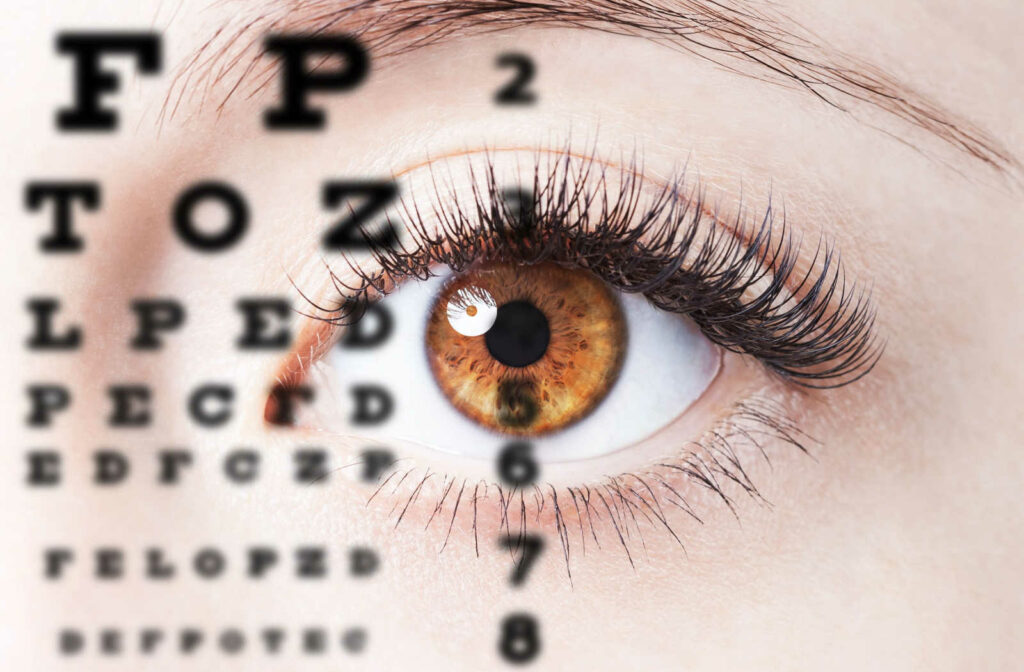Featured
Table of Contents

Routine eye evaluations are necessary for preserving excellent vision and finding potential eye health and wellness issues early. The regularity of these examinations can differ significantly based on a person's age, way of living, and total wellness. Comprehending the advised timetable for eye tests can assist make sure that individuals of any ages receive ideal care and tracking for their eye health.
Newborns and Toddlers (0-2 Years)
For infants and kids, eye tests are critical for identifying any potential vision troubles at an early stage. The American Academy of Ophthalmology suggests that a kid's first eye examination must happen at around six months old. During this initial visit, the eye care professional will certainly analyze the child's aesthetic development and check for any kind of noticeable eye issues.Following this initial test, it is recommended that kids have an additional eye test at age 3. This visit will certainly focus on assessing the youngster's general visual function, including eye positioning and the capacity to track objects. If no issues are discovered, the following test needs to be arranged prior to the youngster begins institution, typically around age five or 6.
School-Aged Youngsters (6-18 Years)
When youngsters get to college age, normal eye examinations ought to be set up every one to two years. Vision is vital for learning and development, and numerous schools carry out vision testings. Nonetheless, these testings do not change a comprehensive eye test by an eye treatment professional.For kids involved in activities or sporting activities needing considerable aesthetic emphasis, annual eye examinations may be a good idea. In addition, if a youngster displays signs of vision problems-- such as trouble reviewing, squinting, or constant migraines-- a visit to the eye medical professional need to be arranged as quickly as possible.
Young Person (19-39 Years)
Young person commonly have less vision modifications than older age, yet normal eye tests continue to be important. The basic recommendation is to schedule an eye examination every two years throughout this duration. Nonetheless, individuals with specific threat elements-- such as a household background of eye disease, diabetes, or those that use get in touch with lenses-- need to think about yearly eye examinations.Furthermore, those that spend significant time on digital gadgets might experience digital eye strain. If signs such as dry skin, exhaustion, or blurred vision occur, it might be important to see an eye care expert faster.
Adults (40-64 Years)
As people go into middle age, the probability of creating vision issues rises. Grownups aged 40 to 64 ought to arrange eye examinations every one to two years. This age might begin to experience presbyopia, an all-natural age-related condition that makes it testing to concentrate on close items. Eye examinations can additionally aid spot various other common age-related problems such as glaucoma, cataracts, and macular degeneration.If people in this age have danger elements like high blood pressure or diabetic issues, they may need more constant assessments to check their eye wellness closely.
Seniors (65 Years and Older)
For senior citizens, normal eye exams come to be even more important. The American Optometric Association advises that individuals aged 65 and older have an eye exam a minimum of annually. Older adults go to a greater threat for various eye illness, consisting of cataracts, glaucoma, and age-related macular deterioration. Early detection and therapy of these problems can protect against vision loss and boost the lifestyle.Verdict.
Recognizing the ideal timetable for eye exams based on age is crucial for preserving ideal eye health throughout life. By sticking to these guidelines and seeking advice from with an eye care professional, people can take proactive actions toward preserving their vision and overall wellness.Table of Contents
Latest Posts
Host Your Perfect Event: Place Rental Options for every single Celebration
Published Mar 17, 25
1 min read
Furnishings Styles Living Room
Published Jan 30, 25
0 min read
The Advantages of Customized Furnishings: Why It's Worth the Financial Investment
Published Jan 24, 25
0 min read
More
Latest Posts
Host Your Perfect Event: Place Rental Options for every single Celebration
Published Mar 17, 25
1 min read
Furnishings Styles Living Room
Published Jan 30, 25
0 min read
The Advantages of Customized Furnishings: Why It's Worth the Financial Investment
Published Jan 24, 25
0 min read